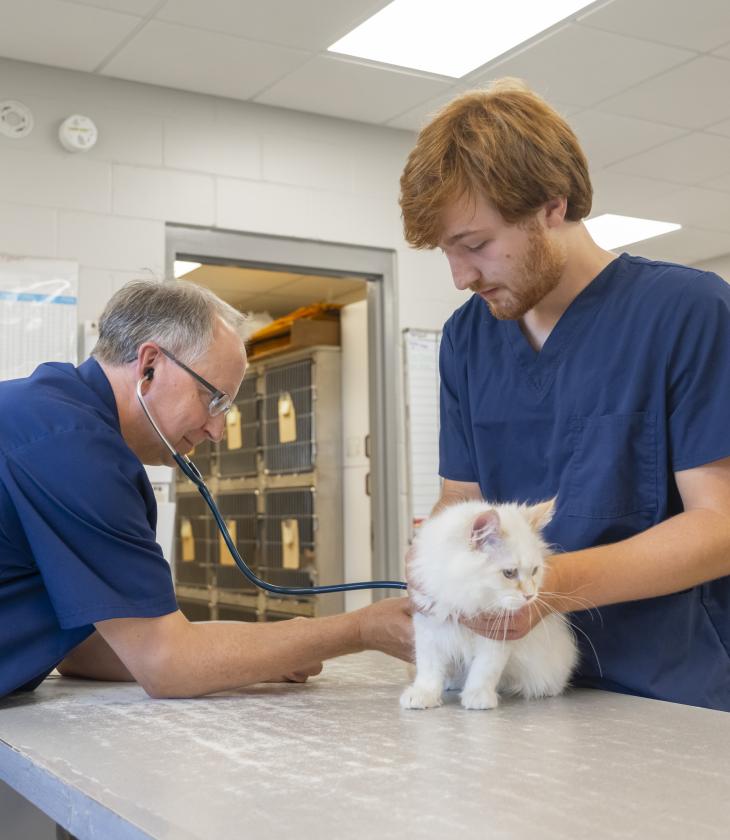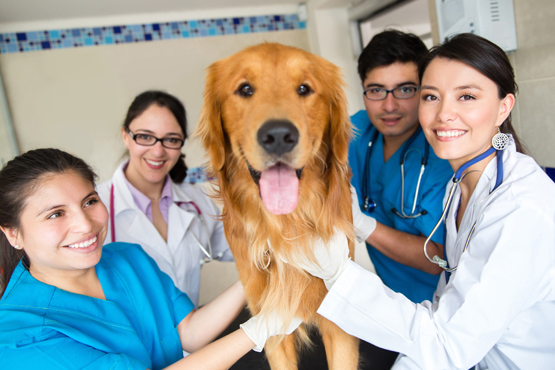The Relevance of Very Early Discovery: Insights From a Veterinary Oncologist
Early discovery of cancer cells in family pets is an important topic for pet proprietors and vet experts alike. Veterinary oncologists stress the importance of identifying refined indications that might show severe health and wellness concerns. Common symptoms commonly go undetected until they escalate. Comprehending these early indication and developments in analysis methods can make a substantial difference. What actions can pet owners require to improve their pets' chances of very early medical diagnosis and better therapy end results?
Recognizing Cancer in Animals: Usual Types and Signs
While many animal proprietors may not understand it, cancer is a considerable health issue impacting pets, a lot like it carries out in humans. Usual kinds of cancer in family pets consist of lymphoma, mast cell lumps, osteosarcoma, and mammary lumps. These hatreds can manifest in various methods, depending upon their place and kind. Signs often consist of inexplicable fat burning, persistent vomiting, changes in cravings, or unusual swellings and bumps. Pet dogs may also display sleepiness, trouble breathing, or hesitation to workout, which can show underlying health concerns. Early signs can be subtle, making it crucial for family pet owners to be watchful of their animals' habits and physical problem. Understanding these usual types and connected symptoms can equip owners to look for veterinary treatment quickly, possibly resulting in earlier medical diagnosis and treatment alternatives. Acknowledging the indications of cancer in family pets is a vital action towards improving their health and lifestyle.
The Duty of Veterinary Oncologists in Very Early Detection
Vet oncologists play an essential duty in the early discovery of cancer cells in pets, as their specialized training equips them with the skills required to determine refined indicators that may be overlooked by general practitioners. They use a combination of clinical expertise and progressed diagnostic devices to analyze people thoroughly - Veterinary Oncology Services. By recognizing very early signs and danger factors, oncologists can assist family pet owners toward timely interventions, enhancing the possibilities of successful treatment
Veterinary oncologists frequently team up with basic practitioners to establish screening protocols tailored to specific breeds or age teams, enhancing the effectiveness of early detection efforts. They enlighten pet dog owners on the value of regular check-ups and awareness of modifications in habits or physical problem. Via these aggressive measures, vet oncologists substantially contribute to enhancing outcomes for pet dogs detected with cancer cells, highlighting the crucial nature of their role in vet medical care.
Breakthroughs in Diagnostic Techniques for Pet Dog Cancer
Improvements in diagnostic methods have markedly improved the capacity to identify cancer in animals at earlier phases. Techniques such as advanced imaging, consisting of MRI and CT scans, give detailed inner views, enabling veterinarians to recognize lumps that might not be palpable. In addition, the advancement of minimally intrusive treatments, such as great needle aspirates and biopsies, allows precise tasting of tissues for histopathological analysis with reduced tension for the pet.
Emerging molecular diagnostics, including hereditary screening and biomarker identification, are changing the landscape of veterinary oncology. These approaches can identify particular cancer types and predict actions to treatment, assisting in individualized treatment strategies. Developments in lab methods, such as fluid biopsies, are starting to provide non-invasive choices for checking growth development and treatment efficacy. Jointly, these technologies represent a considerable leap forward in vet medication, stressing the crucial function of very early discovery in enhancing end results for animals detected with cancer cells.
How Family Pet Owners Can Acknowledge Indication
Exactly how can family pet proprietors become attentive in identifying prospective indication of cancer? Awareness of physical and behavioral modifications in family pets is essential. Common signs include unusual lethargy, anorexia nervosa, or unexpected weight changes. Animal proprietors ought to also pay focus to consistent vomiting or diarrhea, which may click here now signify underlying issues.
Adjustments in the skin, such as swellings, bumps, or sores that do not heal, necessitate prompt helpful site vet focus. Furthermore, owners must note modifications in alcohol consumption practices, boosted urination, or problem in breathing. Unusual limping or discomfort might also be indications of even more major conditions.
Regular vet check-ups can assist recognize these warning signs early. By maintaining a close monitoring of their pets' health and actions, owners can play an essential duty in very early detection, potentially leading to much better results should cancer be detected. Recognizing these indicators might substantially impact a pet's lifestyle.
The Impact of Early Detection on Treatment Results
Early detection of cancer in animals plays an important role in establishing treatment results, as it often enables a bigger range of restorative alternatives. When cancer cells is diagnosed in its onset, veterinarians can execute less invasive therapies, enhancing the likelihood of effective intervention. Early-stage cancers may additionally react much better to chemotherapy or radiation, bring about boosted survival prices and overall lifestyle for the family pet.
In addition, prompt medical diagnosis helps with a more customized therapy plan, lining up with the certain requirements of the animal. This can include individualized medicine routines or medical treatments that are less aggressive. On the other hand, late-stage detection usually leads to minimal choices, extra hostile treatments, and poorer diagnoses. As a result, the relevance of early discovery can not be overstated; it essentially modifies the trajectory of therapy, making it crucial for animal proprietors to continue to be cautious for any indicators of ailment in their cherished companions.
Frequently Asked Questions

Just How Can Diet Plan Influence Cancer Risk in Animals?
Diet regimen significantly affects cancer risk in family pets, as specific nutrients and food types can either promote or inhibit lump growth. A balanced, nutrient-rich diet might help in reducing the likelihood of developing cancer in pets.
Are Certain Breeds A Lot More Prone to Cancer?
Specific dog types, such as Golden Retrievers and Martials artists, exhibit higher cancer cells vulnerability because of genetic proneness. Some feline types likewise reveal boosted cancer dangers, highlighting the significance of breed-specific health and wellness understanding among family pet proprietors.

What Are the Costs Associated With Early Cancer Cells Discovery?
The costs connected with early cancer cells detection can vary greatly, encompassing diagnostic tests, consultations, and prospective therapies - Veterinary Cancer Specialist. Purchasing these services commonly leads to better wellness helpful site end results, ultimately saving money on a lot more extensive future medical costs
Can Injections Avoid Cancer Cells in Pets?


Injections may lower the danger of particular cancers cells in pets, specifically those linked to viral infections. Nevertheless, their efficiency varies, and family pet proprietors should consult veterinarians for customized advice regarding vaccination and cancer prevention strategies.
How Typically Should Pets Be Screened for Cancer cells?
Pet dogs ought to usually be evaluated for cancer cells every year, specifically as they mature or if they exhibit threat factors. Regular vet check-ups can assist determine potential problems early, improving therapy results and general health monitoring.
Early detection of cancer in family pets is a vital subject for family pet owners and veterinary specialists alike. Early indicators can be subtle, making it vital for animal proprietors to be observant of their pets' behaviors and physical condition. Veterinary oncologists play an essential function in the very early discovery of cancer cells in family pets, as their specialized training furnishes them with the skills required to recognize refined indications that might be ignored by basic practitioners. By maintaining a close observation of their pets' health and habits, owners can play an essential function in early discovery, possibly leading to better end results must cancer cells be detected. Early detection of cancer in pet dogs plays an important duty in identifying treatment end results, as it often permits for a larger array of healing alternatives.